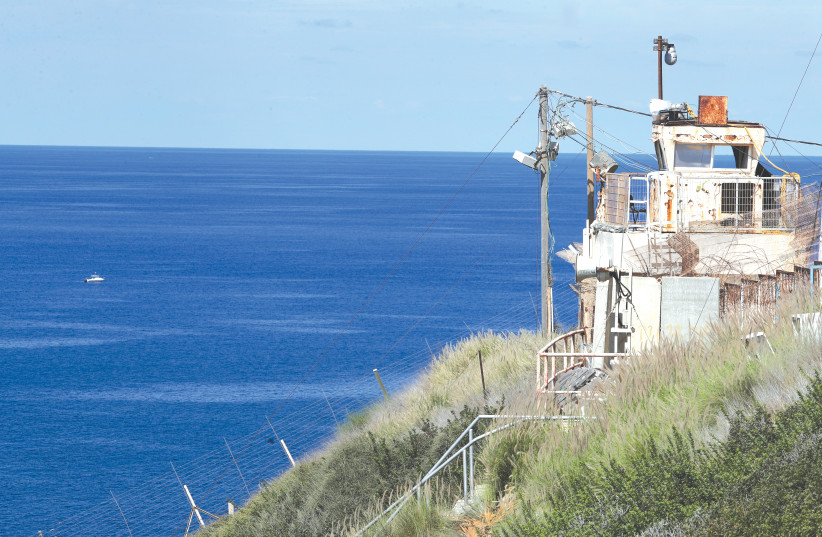On Monday, the Kohelet Policy Forum filed a petition to the High Court to block a potential future deal between Israel and Lebanon for sharing natural gas resources.
Progress in the deal was reported last week and could require Jerusalem to concede aspects of sovereignty to parts of its maritime areas near the coast which may overlap with Lebanon’s maritime areas.
Kohelet said that under existing Israeli law, the government cannot concede any sovereign areas to a foreign country without a referendum.
The specific law Kohelet referenced has been traditionally thought to apply to withdrawals from certain aspects of disputed land between Israel and its neighbors, but Kohelet argued nothing prevented the law from applying to sovereign maritime areas as well.
What is the progress on the deal so far?

Last week, US energy envoy Amos Hochstein said in Beirut that maritime border talks between Israel and Lebanon have progressed in recent weeks toward a final arrangement.
Following a meeting with Lebanese President Michel Aoun, Parliament Speaker Nabih Berri and Prime Minister-designate Najib Mikati, he said: “I remain optimistic that we can make continuous progress as we have over the last several weeks, and I look forward to being able to come back to the region to make the final arrangement.”
The US State Department said Hochstein arrived in Beirut on Sunday “to discuss sustainable solutions to Lebanon’s energy crisis, including the Biden administration’s commitment to facilitating negotiations between Lebanon and Israel on the maritime boundary.”
The US has been mediating between Lebanon and Israel since 2020 to resolve their longstanding dispute over the demarcation of their border in the Mediterranean Sea. The lack of a resolution made it difficult for Lebanon to tap into its natural-gas resources in a time of severe government and economic instability.
Lebanon and Israel disagree on the status of an 860-sq.km. triangle in the Mediterranean Sea, which would be about 2% of Israel’s economic waters. Israel originally agreed to split the area 58% to 42% in favor of Lebanon.
Talks broke down after four rounds of talks in 2021, when Lebanon sharply increased its demands to almost triple the disputed area to 2,300 sq.km., abutting Israel’s Karish gas reservoir.
Nasrallah leans away from war with Israel
Hassan Nasrallah, leader of the Iran-backed, terrorist group Hezbollah, which is part of the Lebanese government, last week said he was leaning away from fighting a war against Israel over gas.
“The treasure is in the sea, and we have this historic opportunity,” Nasrallah said, Lebanese news site Naharnet reported. “We put ourselves in a position of a 50% war possibility and 50% avoidance of war, and today we are in a better position.”
Hezbollah is not a party to the talks, Nasrallah said, adding that it would decide how to behave in relation to their outcome.
Lahav Harkov contributed to this story.
